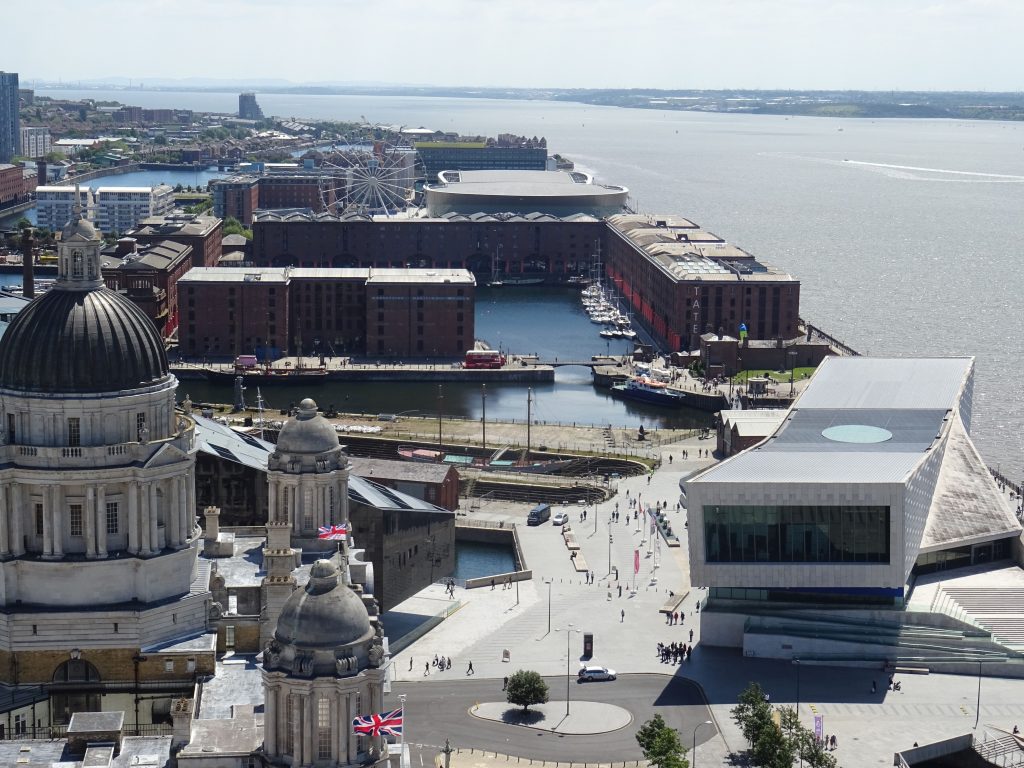
Liverpool’s official history began in 1207, when King John signed the charter officially creating the borough of Livpul on the banks of the River Mersey.
Liverpool’s prosperity has revolved around being a port on the River Mersey, becoming the second port of the British Empire behind London. After Thomas Steer created its first wet dock in 1735, Liverpool began two hundred years of commercial growth that would see it becoming one of the most important ports in the world. Liverpool was now at the heart of world trade in cotton, sugar and tobacco. One of its greatest docks, now home to The Beatles Story, is the Royal Albert Dock, created by Jesse Hartley and opened in 1846. Prince Albert opened it, and declared Liverpool as one of the greatest commercial ports in the world.
The Slave Trade
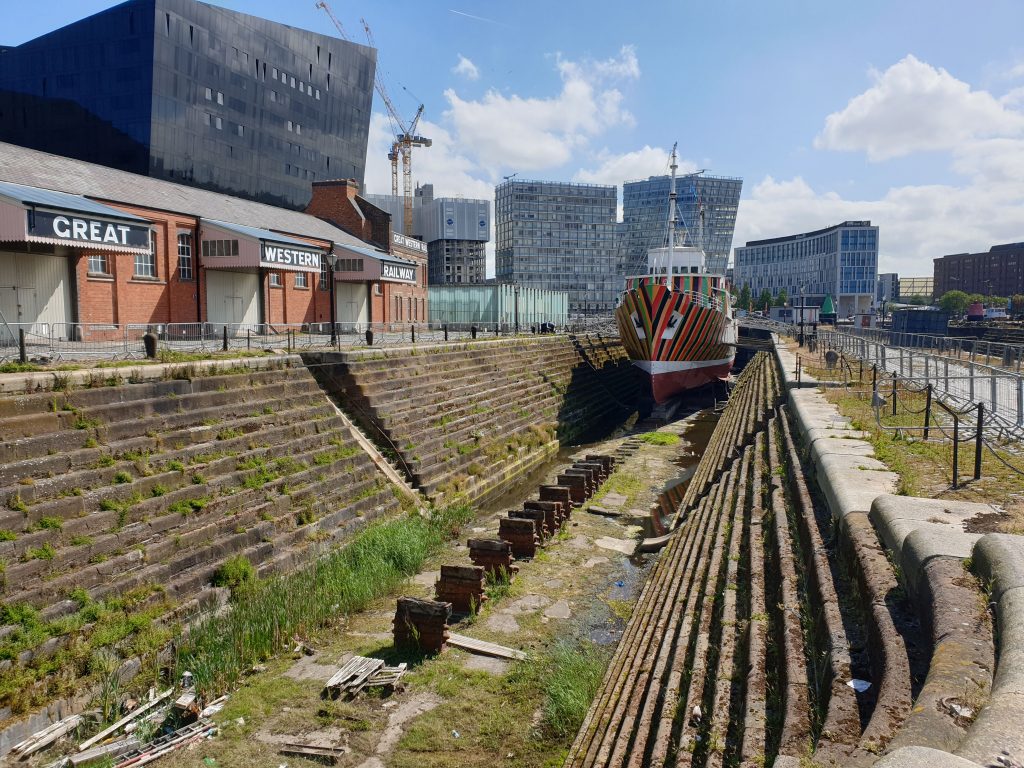
However, a lot of Liverpool’s wealth was derived from the proceeds of the slave trade. Millions of slaves made the perilous journey across the Atlantic, with thousands dying en route. It is a shameful part of Liverpool’s history that the city has acknowledged. Some of Liverpool’s greatest politicians of the time were at the forefront of the abolition of slavery in the early 19th century.
Irish Potato famine
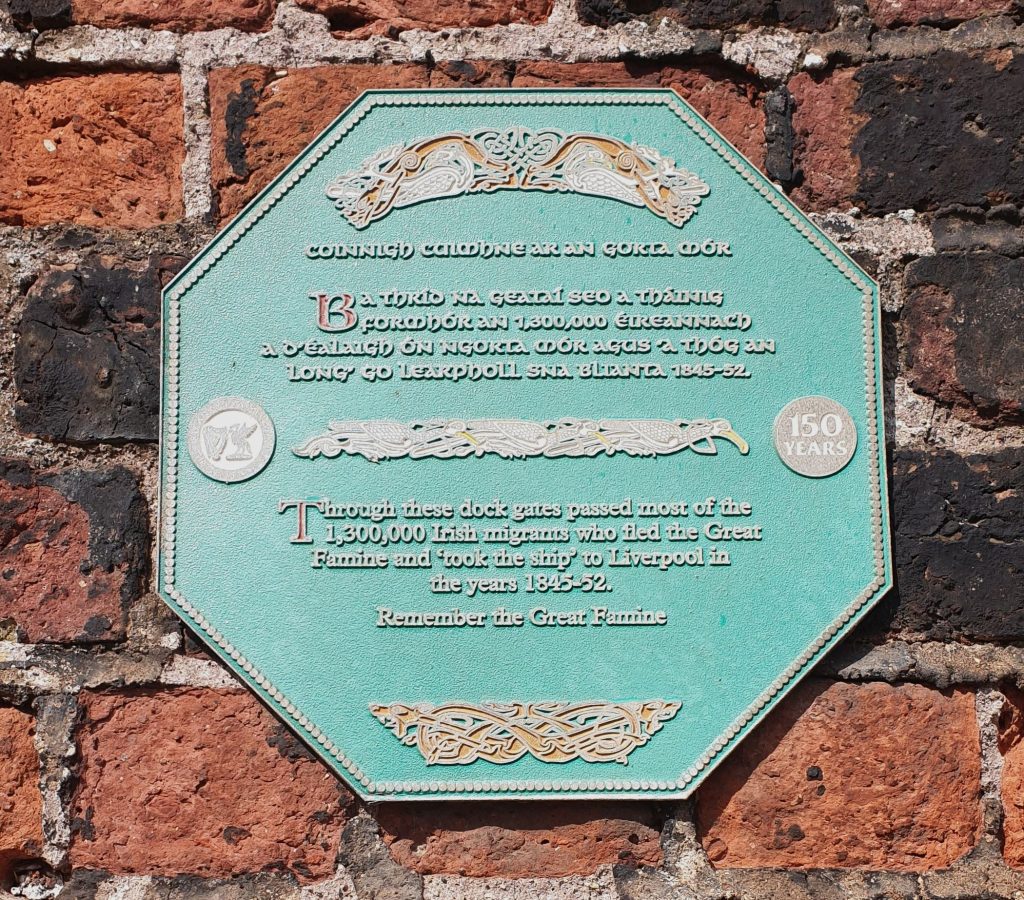
One of the biggest changes to Liverpool came in the 1840s, when a potato famine in Ireland resulted in the death and impoverishment of hundreds of thousands of farmers. Around 1.3 million people left Ireland for the chance of a new start, often in the “New World”, passing through Liverpool on their way to Canada and the United States, especially Boston and New York. Liverpool’s irish population swelled to nearly 100,000 in a decade. Of those Irish men and women who settled in Liverpool were the ancestors of the Lennons and McCartneys, plus the French family, on George;s mother’s side of the family, and Ringo’s ancestors from County Mayo. Liverpool, almost overnight, became majorly influenced by the Irish in terms of their music, culture and the accent.
By the beginning of the 20th century, Liverpool was firmly established at the heart of world trade in sugar, cotton and tobacco. However, over the next few decades, this trade began to slow down as the UK began to trade more and more with Europe.
World War II
During World War II, Liverpool was the second-most bombed city in Britain after London. The May Blitz of 1941 saw the city suffer 9 consecutive nights of bombing by the Luftwaffe, who were targetting the docks that were so essential to keeping Britain going. Thousands of homes were destroyed; over 70,000 made homeless and over 4,000 civilians were killed. Liverpool’s city centre was almost wiped out completely. The Battle of the Atlantic, fought from headquarters beneath Liverpool City Centre, was the only battle to last the duration of the war. Thousands of Liverpool’s merchant seamen, like Alf Lennon, John’s father, made that perilous journey across the Atlantic to and from New York, trying to avoid the U-Boats.
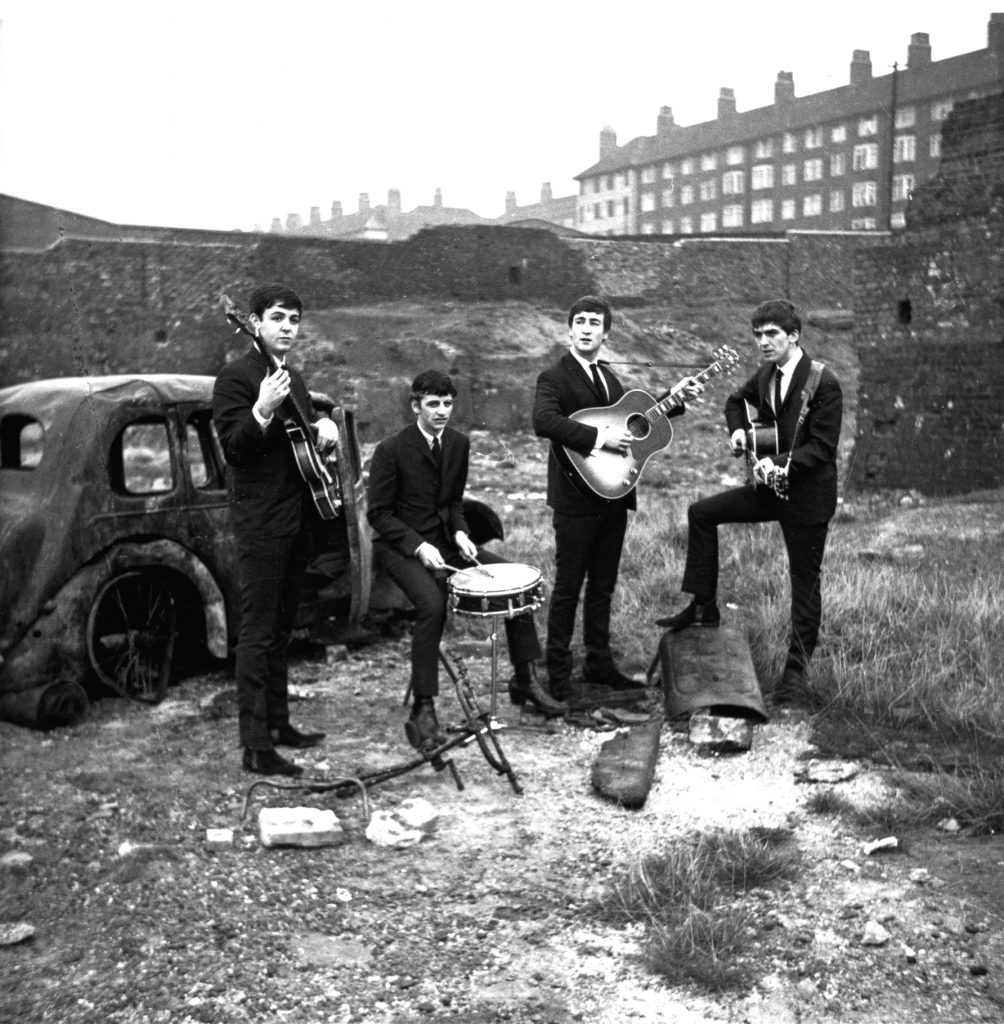
This was the city The Beatles were born into and it was still recovering, slowly, after the war. Rationing didn’t end until 1954 and even by the 1970s, there were huge bombsites left derelict around the city. Liverpool wasn’t re-built after the war. Some of the most iconic early photographs of The Beatles were taken on these bombsites around Liverpool.
The 1960s
By the peak times of The Beatles in the ‘60s, Liverpool’s shipbuilding industry was in rapid decline and docks were not being used: The Beatles put Liverpool on the map, as the city was on the road to unemployment. By the time The Beatles broke up in 1970, just as the city could have been celebrating their famous sons, Liverpool became a depressed city where people had to leave to seek work; there was little time to remember The Beatles and Merseybeat. It seemed that almost as quickly as The Beatles made their fortunes, Liverpool became one of the poorest cities in Europe.
For The Beatles generation born during the war, they still faced the prospect of National Service, for which they just missed, though it did account for drummer Norman Chapman’s short career with the group in 1960. It was, however, a great time to be a teenager, but a career as a musician was out of the question. That was for stars, especially American stars.
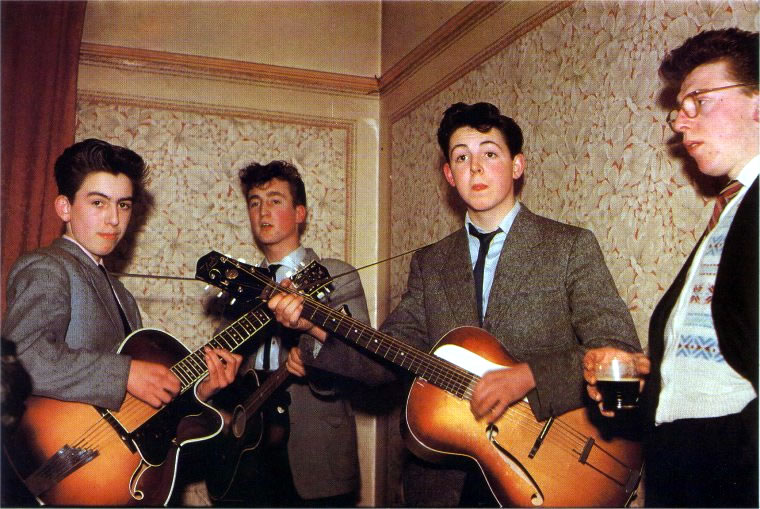
Or was it?


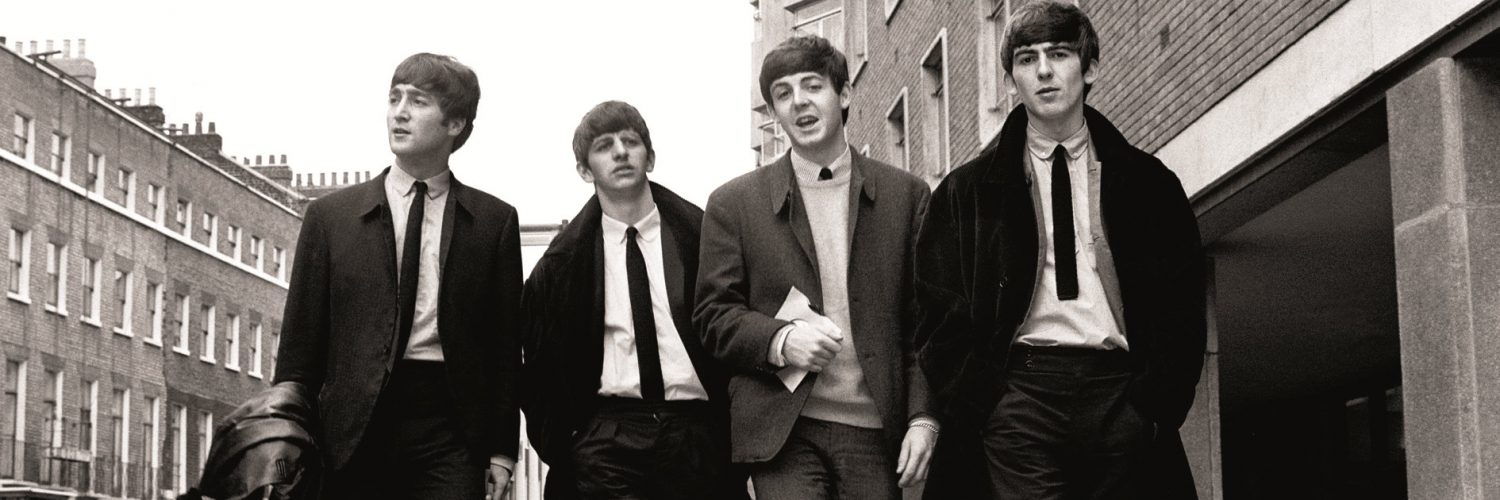

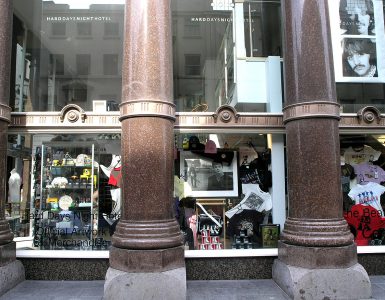
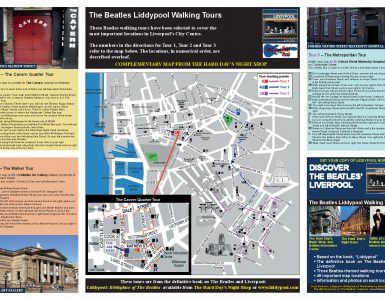
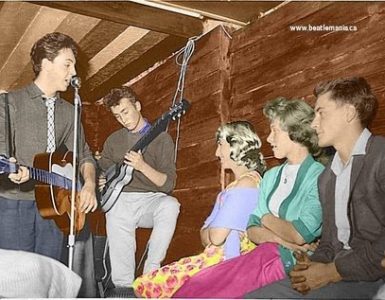









Add comment